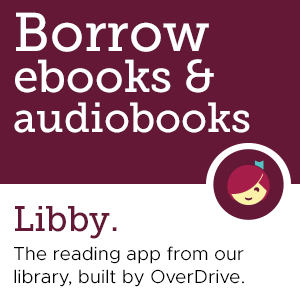Reviews
Publishers Weekly
(c) Copyright PWxyz, LLC. All rights reserved
While remote work “promises to liberate workers,” write journalists Warzel and Peterson (Too Fat, Too Slutty, Too Loud) in this insightful and timely survey, “...in practice it capitalizes on the total collapse of work-life balance.” To dig into a shifting employment landscape in which “work has taken on such a place of primacy in our lives that it has subsumed our identities, diluted our friendships, and disconnected us from our communities,” the authors explore four key concepts as they’ve evolved: flexibility (considering “how many days we’d like people to be in an office, and for how long, and for what purpose”), workplace culture, office technologies, and community. They discuss how the ubiquity of laptops and email, for example, have resulted in increased pressure for “performative work,” such as sending emails and arranging meetings that aren’t especially productive, and they make a case that remote work can be a boon to inclusivity as it takes into account individuals’ different abilities, home lives, and work styles. Passages of advice for bosses (“stop thinking short term) and workers (“what do you actually like to do?”) round things out. Never sacrificing meaningful analysis for easy answers, this is a remarkable examination of the rapidly-changing workplace. (Dec.)
Library Journal
(c) Copyright Library Journals LLC, a wholly owned subsidiary of Media Source, Inc. No redistribution permitted.
Of Jamaican and Nigerian heritage and a resident of both London and Brooklyn, PEN Ackerley Prize—winning poet Daley-Ward explains how we can become our own best and truest selves in The How. A principal dancer at the New York City Ballet who starred on Broadway in On the Town, plus a podcast host, MBA student, and mother of three, Fairchild explains The Ballerina Mindset that lets her do it all with apparent ease. In parlous times. Stoic philosophy is suddenly trending, and Fideler's Breakfast with Seneca provides an accessible overview. The first woman and first Black minister at the progressive Collegiate Church in Manhattan, which dates from 1628, Lewis shows how we can cope with today's divisive culture by discussing her own reckoning with racism, her interracial marriage, nine daily spiritual practices that have sustained her, and the importance of Fierce Love. In The Power of Fun, award-winning science journalist Price argues that treating fun as an important part of your life—and she doesn't mean binge-watch your favorite TV shows—will make you happier and more productive. In Saving Grace, Powers leans on her experiences as a CNN senior political analyst and USA TODAY columnist to explain how we can maintain mental well-being without deserting our own convictions during conflict-ridden times. Author of the New York Times best-seller and Reese's Book Club pick Fair Play, Rodsky urges women to rethink their priorities and claim essential healing time for themselves in Find Your Unicorn Space. Having left their New York desk jobs and moved to Montana, leading culture journalists Warzel and Petersen see today's pandemic-driven work-at-home situation as a cobbled-together compromise and explain how we can create true Out of Office work schedules benefiting both workers and employers.
Library Journal
(c) Copyright Library Journals LLC, a wholly owned subsidiary of Media Source, Inc. No redistribution permitted.
This book is not solely focused on remote work as its title might imply but on a holistic system through which employers give their employees more control over all aspects of the way work gets done and where they place their jobs in the hierarchy of importance in their lives. Journalists Warzel and Petersen (Can't Even) refer to their proposal as a "work renovation project" that encompasses four concepts: flexibility, culture, technologies of the office, and community. In sections devoted to each of these concepts, Warzel and Petersen discuss ways that employers and workers in the U.S. can reform policies that give too much weight to bolstering the bottom line and shoehorning job responsibilities into more hours in the day. They recommend new practices based on trust and respect that let workers have a say in determining the most necessary parts of their jobs and how best to get those done. Warzel and Petersen's proposal is intriguing, but it will require a mighty shift in mindset among organizational leaders to bring it to fruition. VERDICT Will appeal to company leaders looking for new organizational models and workers looking to advocate for change in their organizations.—Sara Holder, Univ. of Illinois Libs., Champaign
Book list
From Booklist, Copyright © American Library Association. Used with permission.
Universal workplace upheaval provides an opportunity for workers and leaders to shift expectations and establish sustainable work/life balance. This balancing act is impossible for workers without systemic change improving workforce stability and productivity. Based on a historical review of workforce expectations, journalists Warzel and Petersen focus on four key areas for strategic change to improve working conditions, employee satisfaction, and wellness. These are flexibility: workers schedule workflows to accommodate personal commitments; culture: external commitment to valuing employees matches internal experience of employees; office technologies: productivity technologies streamline to benefit employees (think shorter work weeks) rather than adding additional work without additional pay; community: work-time guidelines allow employees to participate in communities, enriching society. Prior to the pandemic, worker burnout, transience, and dissatisfaction were culminating in a call for change. The pandemic and remote-work chaos heightened awareness of the need for change, the return to work now occurring provides the opportunity, and this book provides a roadmap. Recommend for business schools and academic- and public-library collections.





